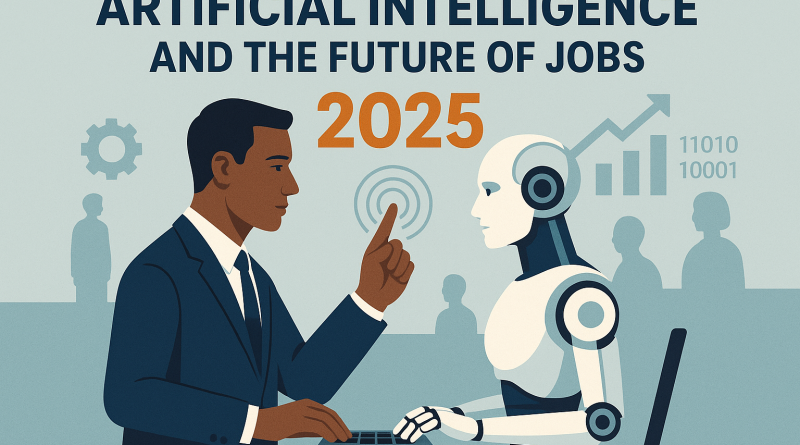Artificial Intelligence and the Future of Jobs in 2025
Artificial Intelligence and the Future of Jobs in 2025
Meta Description: Explore how Artificial Intelligence (AI) is reshaping the job market in 2025. Learn which careers are at risk, new opportunities, and how to prepare for the future of work.
Artificial Intelligence (AI) has become the most transformative force in today’s world. From virtual assistants to self-driving cars, AI is not only changing how we live but also how we work. In 2025, the impact of AI on jobs is more significant than ever. While some careers are at risk, AI is also creating new opportunities across industries. Understanding these changes can help you prepare for the future of work.
What is Artificial Intelligence?
Artificial Intelligence is the simulation of human intelligence in machines that are programmed to think, learn, and make decisions. AI systems analyze data, recognize patterns, and perform tasks that usually require human intelligence.
Types of AI
- Narrow AI: Specialized systems that perform specific tasks (e.g., chatbots, recommendation systems).
- General AI: Hypothetical AI that can perform any task a human can do.
- Superintelligent AI: A future concept where AI surpasses human intelligence.
AI in Everyday Life
- Voice assistants like Alexa, Siri, and Google Assistant.
- Recommendation engines on Netflix, YouTube, and Amazon.
- Self-driving cars and smart transportation.
- AI in healthcare for diagnostics and drug discovery.
Impact of AI on Jobs
AI is reshaping the job market by automating repetitive tasks and improving efficiency. According to reports, millions of jobs may be replaced, but millions of new jobs will also be created.
Jobs at Risk Due to AI
- Data entry and clerical roles.
- Basic customer service jobs.
- Manufacturing and assembly line workers.
- Simple transportation jobs like delivery drivers.
Jobs Created by AI
- AI Engineers: Professionals building intelligent systems.
- Data Scientists: Experts analyzing large datasets for insights.
- Cybersecurity Specialists: Protecting AI-driven systems from threats.
- AI Trainers: Teaching machines to learn from data.
Industries Benefiting from AI
- Healthcare: AI-powered diagnosis, robotic surgery, and patient care.
- Finance: Fraud detection, automated trading, and customer service.
- Retail: Personalized shopping experiences and inventory management.
- Education: AI tutors and adaptive learning platforms.
How to Prepare for the AI Future
- Learn in-demand skills like data science, coding, and machine learning.
- Focus on creative and critical thinking skills that AI cannot replicate.
- Stay updated with the latest technology trends.
- Adapt to lifelong learning and continuous upskilling.
Conclusion
Artificial Intelligence is not here to take jobs—it is here to change them. While routine tasks are being automated, human creativity, empathy, and problem-solving will always be valuable. By preparing for the AI revolution, you can secure your place in the future workforce.
Call to Action: Start learning AI-related skills today and position yourself for the jobs of tomorrow.
